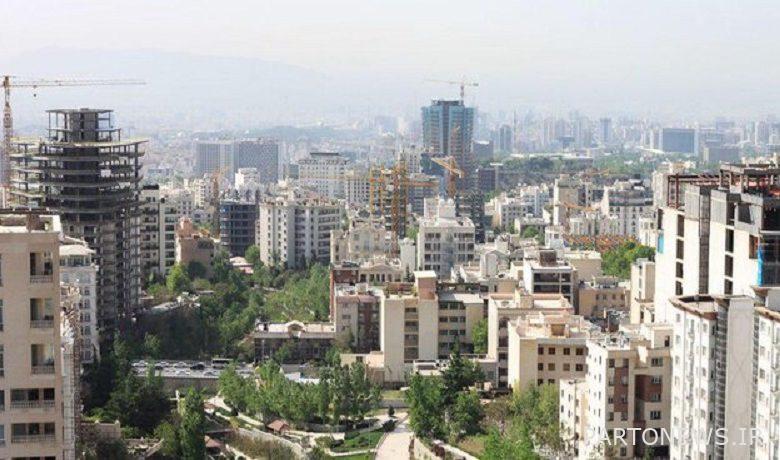The prosperity of the housing market in the hands of the JCPOA

According to Tejarat News, quoted by national idealprice increase Housing In recent years, the number of transactions has been greatly reduced, and now there is a concern that housing may enter a period of inflationary stagnation. Many reports indicate that housing transactions have been stopped since the last two weeks and many traders are waiting for the outcome of the JCPOA.
This is while the capital’s real estate consultants say that since the last week, with the drop in the price of the dollar and receiving signals of a possible agreement on the housing market, buyers and sellers have faced a decline, and the buyers hope that the price of housing will decrease with the final agreement, and therefore for now They stopped the decision to buy.
At the same time, some sellers who have no hope of an agreement removed their file from the sales list and are not willing to reduce the price of their property. Experts also believe that if the agreements are not reached, the recession in the housing market will continue to sleep for a long time and it is unlikely that it will decrease.
If the agreements are finalized, the possibility of price reduction is not far from expected.
How much will the JCPOA impact on housing?
Iraj Leader, an expert in the field Housing In this regard, he said: Housing conditions are very important in the economic issue of the country. Any amount of changes that occur in the economy of the whole country will definitely have an impact on housing. So, we conclude that the JCPOA has a special effect on the future of housing.
Also, if nothing happens in the current conditions of the country, there will be no change in the housing market and it is expected that this state of stagnation will continue for several months. In the same way, if the agreement and the events that are currently trying to be implemented do not happen, we will have the possibility of price increase.
The leader added: If the price increases, it will hardly return to its original state. In fact, prices increase easily, but it is impossible to reduce it in many cases, and the entire country’s economy, a large share of which is allocated to housing, will have an impact on the housing market if there is a small change in it.
Government policy in the field of housing
Farhad Baizai, another expert Housing In this regard, he said: JCPOA is an important issue that should be waited for and see what currency policy the government adopts. In fact, the JCPOA itself is not important, but what policy the government applies in the field of currency is important.
He added: Although the price of the currency is a decreasing rate and the price of housing may fall in the near future, it seems unlikely that the government will have such a policy because this will cause more disruptions in the market. It is unlikely that the government will implement the policy of reducing the exchange rate, but it can keep the rate as it is and stabilize the market. If this happens, we will have the issue of housing price stability.
This real estate expert said: There are many debates in the real estate market. For example, the land issue, if the government adheres to its commitments, its effects will be greater than the currency market and will lead to a decrease in housing prices. If the government has a decrease in the price of currency, it can have a downward trend in housing prices. If our foreign exchange earnings increase, then the housing market will increase housing prices due to liquidity.
Two scenarios for the housing market
Baitullah Satarian, a housing expert, believes that two scenarios can be imagined for the housing market. If the JCPOA is realized, housing will prosper and we will face an increase in prices. If the housing agreement is not fulfilled, it will go into a deep inflationary stagnation and this inflationary stagnation will no longer be combined with prosperity. Also, if the JCPOA is realized, the production of housing will increase significantly, and as a result, the price and buying and selling will also change.
Satarian, in response to the question whether the JCPOA can be the basis for the return of investors to the housing market, said: Retailers play a significant role in the country’s housing market. These people never have an in-depth analysis of the market, and they leave this market immediately after the government beats the drum of building one million housing units. While experience has shown that the government cannot play a significant role in housing production. Exactly the same thing happened in Mehr housing, where under the shadow of Mehr housing, the private sector’s housing production decreased significantly.
He further added: Housing has a very high potential and political use of this market should be prohibited. However, the housing market has a high political potential, and the government should undertake the only means of construction and especially the supply of land. According to the available statistics, no government has been able to produce more than 40,000 to 50,000 residential units. Therefore, in the current situation, we should not drive the private sector out of the housing market, but by allocating appropriate financial instruments, we can encourage the private sector to increase housing production so that over time, the private sector can easily meet the country’s housing needs.
He added: In the current situation, the private sector prefers activities in neighboring countries to construction in the country, which is a serious alarm for the future of the housing market. Although construction is very profitable in the country, but due to the lack of suitable financial tools and empty government support, the private sector prefers to operate in other countries, and housing is not properly recognized by the government and parliament.

